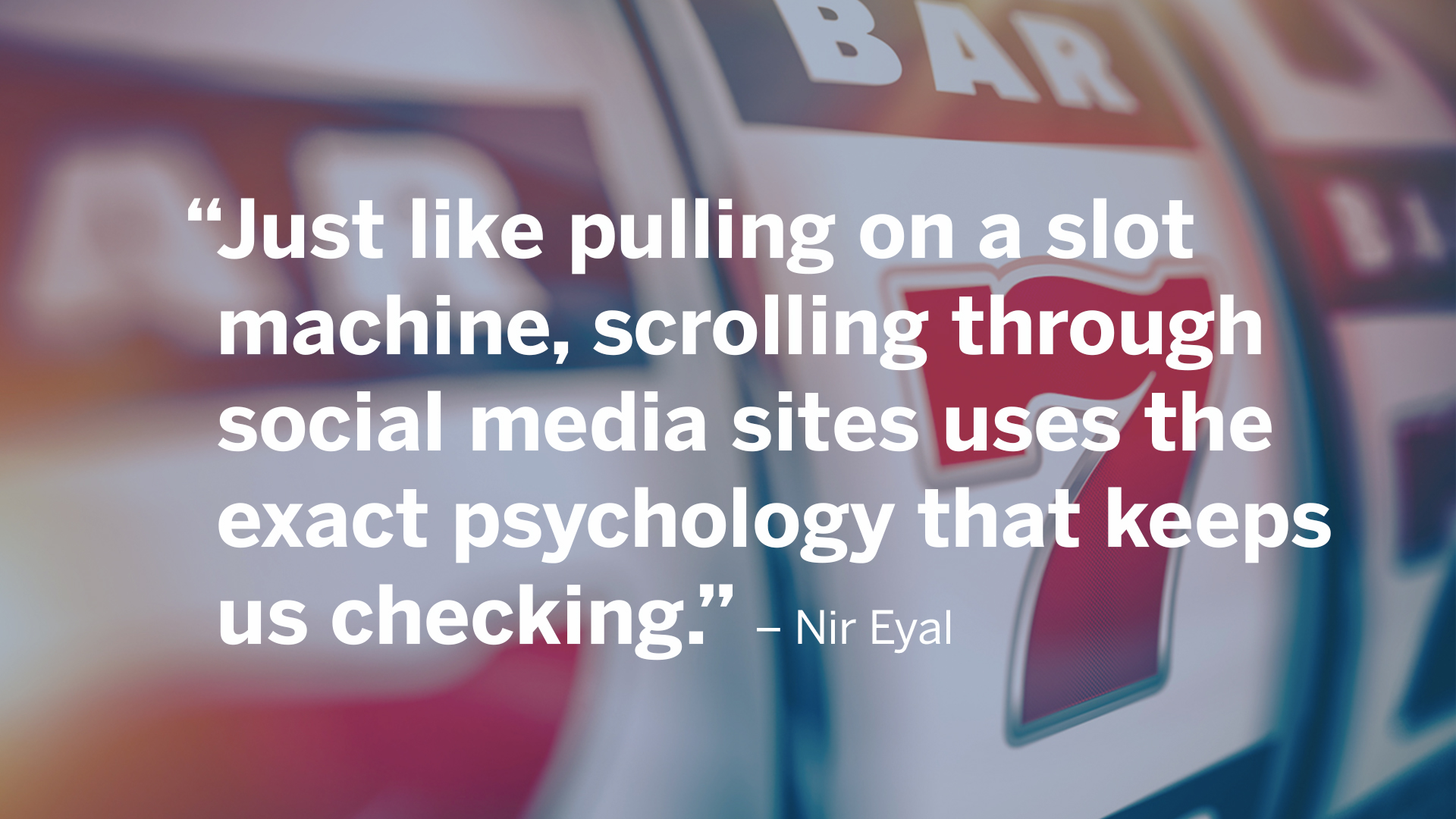Tiffany Dufu is often described as a catalyst-at-large in the world of women’s leadership. As the Chief Leadership Officer at Levo, author of the forthcoming memoir and manifesto Drop the Ball: Achieving More by Doing Less, and appointee to Fast Company’s League of Extraordinary Women, Tiffany works to advance women and girls. She recently joined friend and fellow women’s advocate Ann Shoket for a live Heleo Conversation at New York’s Soho House. Ann is the former editor-in-chief of Seventeen magazine, on the launch team of CosmoGIRL, and author of the forthcoming book The Big Life: Embrace the Mess, Work Your Side Hustle, Find a Monumental Relationship, and Become the Badass Babe You Were Meant to Be. Ann and Tiffany discussed the changing expectations and opportunities for women in the world today.
Ann: I have never met a successful woman who cannot put her finger on what her dream was when she was 16 years old. You spend the rest of your life trying to live up to that idea, trying to honor your inner 16-year-old. What did you imagine that your life would be like when you were 16?
Tiffany: Like every 16-year-old, I had ideas about what I wanted, but I had an enormous amount of insecurity. What I fantasized about, honestly, was that the reassurances that my mother gave to me would come true. I would come home and say, “None of the boys like me because I don’t have big boobs like Krista,” and she was like, “Honey, one day, I promise you, you’re going to walk into a room with your flat chest and you’re going to be beautiful and bold and feel good about yourself.” I almost didn’t believe her, but deep down inside, I imagined that one day it would be true.
I definitely am living the fantasy, and I wish that I had understood that much sooner. If I had advice for younger women, I would say, believe it earlier. I feel terrible that I spent so much of my life not believing.
With this generation of women, I do experience a confidence and a level of risk taking that I didn’t have at that age. I moderated a panel at Time Warner two days ago, and there was an intern who had planned the event. After the panel, I was standing with three other senior executive women. I made an argument and the intern, without even being asked, said, “Actually, I think something different,” and gave her counter-argument, with good evidence—it was brilliant. When I went downstairs, I thought, “20 years ago, there’s no way that standing there, I would have said anything.”
I’m interested in how you’ve gotten so good at understanding this generation. You spent a great deal of your career in the hearts and minds of millennial women, learning to understand their aspirations as teenagers.
Ann: Absolutely. I was the editor-in-chief of Seventeen and one of the launch editors of CosmoGirl. That was back in 1999, and even before that, I was at another teen magazine. My inner 25 year-old is alive and well, and I check in with her all the time and she thinks this is pretty badass.
One of the things that is so different about this generation of millennial women is how they think about career, ambition, and success. When I was coming up, nobody ever said to me that you should do things that make you happy. What I was told was “do something that you’re good at,” and I was good at asking nosy questions, so I became a reporter.
“Success and ambition are just for the girl who’s at the front of the class anymore. They’re for everyone.”
It wasn’t until my third or fourth job that I found the spark of a passion, talking to young women about how you become who you’re meant to be. But because I’ve had such a long view of the changing values and tastes of young women, I can see how this generation is different.
Success and ambition are not just for the girl who’s at the front of the class anymore. They’re for everyone. Every single young woman wants to make her mark on her own terms. She wants the world to bend to the way she wants it to be, like that intern. That’s stunning. If I were standing around a bunch of senior media folks, I would have just stood there and stared.
Here, this woman has an opinion and wants to be heard, and why not? When we talk about entitled millennials—they have something to say, say it. It’s a phenomenal change to honor your ambition and your dreams and to make the world work the way you want it to work.
Tiffany: Absolutely.
Ann: Back to your idea of what your 16-year-old self wanted, what does your big life look like now? What part of that dream is reflected in your life?
Tiffany: For me, the big life is about big perspective. Because we all have different definitions of success and all want different things, I imagine the big life to be having clarity about what matters most to you. In my case, what matters most is advancing women and girls. That’s why I’m on the planet. I already know what’s on my tombstone and I’m just project-managing my life backwards.
Ann: That’s amazing, to be able to say to the world and to everybody you meet, this is my purpose. But how do you get there?
Tiffany: Some people arrive at it by walking down the street—the sky opens and there’s thunder and they fall to their knees and the rain starts pouring and they think to themselves, “I’m here to save orcas.” But I don’t think that’s how it happens for most of us. I believe that your purpose, if you have one, is simply a commitment that has been inspired by a series of experiences that you’ve had. I love that definition of purpose because it means that you can engineer it.
A commitment is a decision. You can decide, “this is what’s important to me.” My commitment was inspired by a couple of things. One is very personal.
Trending: Navy SEAL Secrets for High Performance Under Pressure
My mom had a really difficult time after my parents divorced. One of the things that I discovered is that all of the social, economic, and political capital that I thought was our family’s really just belonged to my dad, who was the one who had gone to college on the GI bill, gotten the PhD in Theology, was a pastor, and had the public persona.
I wouldn’t have articulated it that way at the time, but I certainly felt like the choices that women make have a big impact on their lives. The big life, for me, is having clarity about what matters most and leveraging your highest and best use.
The big life also has to do with this whole concept of being a badass babe. When I met you, I was like, “I want to be a badass babe.” What do I need to do to be that? Is that something that you’re born with or is it cultivated?
Ann: The feeling of being badass is like your hair is blowing in the wind, it looks amazing. You’re standing tall and the shoes don’t hurt. You look good, you feel good, you’ve got something you’re going to. You’re in the flow, the seas are parting for you, and the world is bending to your will without you having to do anything. That’s the feeling of being badass—that you can walk into any room and own it. It’s not inherited. It’s not something you’re born with.
“The secret to having it all is not doing it all, and letting go of the unrealistic expectations.”
It’s a confidence that comes with knowing who you are and knowing what you’re good at and having worked hard to make the world work the way you want it to work. We all want to feel confident, complex, understood and supported, and to feel like you’re doing things that make a difference. That’s the feeling of being badass.
I don’t feel that way all the time. I feel frantic and sweaty 50% of the time. But the times that I feel my badass-ness, I’m like, “This is great. Can we bottle this?”
Let’s talk about work-life balance. I want to know what it means for you.
Tiffany: What that means is that I can have a career that’s connected to my passion and purpose, that I can simultaneously have an all-in partnership with somebody I care deeply about. At the same time, I can be raising conscious global citizens and, in addition, I can also be physically fit and somewhat happy. It can be messy and sometimes uncomfortable and very scary, but I don’t have to wait or stagger or have a piece of it here and a piece of it there.
It’s a very important ecosystem. On Tuesday afternoon, the CEO of Levo, Caroline Ghosn, asked me to fill in for her for a media spot at 7:20 the next morning. I have two school-aged children that normally I would be taking to school at 7:20 in the morning. She needed a yes from me pretty much on the spot, which I gave her, knowing that I had not figured out the logistics.
The ecosystem is important because being able to have opportunities like that requires that you have a village in place to support you. The problem with fairy tales is they never really address the logistics. What I knew in my head as she was asking me is that my husband had told me, “Tiffany, I have an early morning meeting with my CEO on Wednesday.”
I knew that there was going to be a conflict, so I immediately sent a text message to him to say, “I have this opportunity. I’m so sorry because I know that you told me that you had your meeting.” You need a healthy, strong, all-in partnership to send a text like this and to have someone immediately say, “Don’t worry, you’re going to be fabulous. I’m going to make my meeting. I’m going to find a babysitter. It will work.”
The secret to having it all is not doing it all, and letting go of the unrealistic expectations.
Ann: Of all the things that you do, the thing that I cannot figure out is how you work out. I think the most important part of what you said is the self-care—if you are not healthy and strong and energized and centered, everything else is going to feel more frantic. How do you make the gym a priority?
Tiffany: I think we need to expand the definition of what it means to be healthy and fit, and it doesn’t mean going to the gym. There are times when I’m traveling, I cannot get up and go to the gym but I will dance to Beyonce for an entire hour.
Also, I’m very protective of my exercise time. When people suggest that I should be doing something other than taking care of myself, I get quite defensive. I also involve my kids. Sometimes I don’t have a babysitter. We live across the street from the park. I run up and down the steps in the amphitheater while they play on the stage. I pretty much do everything that I can in order to get it in but, at this phase in my life, I do get up early in the morning to do it.
You are doing a lot, as well. You’ve had a career in publishing but now you are an author, speaker, and entrepreneur, and you are also a wife and mother. How have you been able to manage it?
Ann: I embrace the mess. I don’t manage it. I feel like I’ve always missed something or there’s five other things that have to be done, and it ends up being okay. That is the advice that I give to young women, that you have to say yes to everything. We have phenomenal opportunities. You have to say yes to see what sparks for you, what’s interesting, who are you going to meet.
“We do a disservice to each other to gloss over the stuff that’s hard. To say that it’s not incredibly hard to succeed or do good work doesn’t help anybody. We should acknowledge that it’s hard to do big things, and cheer each other on.”
Yet, when you say yes to everything, you’re exhausted and tired and drained and you’ve had too much wine, too much coffee, and no sleep. All of that is totally great as long as you spend the weekend to recover. Eventually, all your stuff starts to go together.
Tiffany: I have plenty of mess. But it’s intentional, chosen mess and there are huge trade-offs.
Ann: I thought you were going to say that you enjoy a mess. There’s a lot of women whose mojo is in their mess.
I used to work for a woman whose desk was a nightmare of post-its. I ran into her recently and said, “You embrace the mess literally.” She’s like, “Oh yeah, I cleaned up and couldn’t even think straight.” I think a little bit of my mojo is in the mess, because I like being on the edge. I like filling up my schedule to the point where I cannot handle it anymore—knowing that there’s something next.
Tiffany: I feel like when I’m with you, I’m getting the real Ann Shoket, not a magazine, airbrushed version of her. Have you practiced that? How does that inform your leadership?
Ann: I wouldn’t actually know how to be fake with you or with anyone. But I am aware that particularly in this Instagram-y life, we all want to put forth this polished version of ourselves.
We do a disservice to each other to gloss over the stuff that’s hard. I’ve been on television and my heel breaks. I’ve been at meetings where I’ve said completely the wrong thing. To say that those things don’t happen or that it’s not incredibly hard to succeed or do good work doesn’t help anybody. We should acknowledge that it’s hard to do big things, and cheer each other on.
Tiffany: Can you talk about the importance of the squad?
Trending: How to Make Menopause the Best Time of Your Life
Ann: Yes. I did not have a squad for a long time. When I was coming up in the world, networking was this “glass of chardonnay, shaking hands” awfulness. There were a few women who I liked and respected, but I wouldn’t say they were on my speed dial. There’s this new idea of how women come together to help each other, which is led by millennial women, this idea of sisterhood and collaboration, not competition. If you have power and I have power, there is more power in the world, not that it’s a zero-sum game.
Your squad is not your best friend. Your squad is not the girl who you’re calling up and going over endlessly about what’s happening on your dates. Your squad is a chick who’s there to help support you do amazing things in the world. It’s better if it’s someone who you know professionally, who is generous with you and who you can be generous with.
Here’s the thing that I want to know, because you seem so sure of your purpose and so focused and driven and put together—if I could solve one problem for you, what would that problem be?
Tiffany: If you could wave a magic wand and support me in a challenge that I have with my daughter, it would mean the world to me.
My daughter is seven years old and she consistently wants things that she doesn’t have. For example, right now she really wants long hair. Not long ago, we were in the back of a taxi. She was watching the whole loop of the taxi TV and looked at me and said, “Mommy, every woman in the taxi TV has long hair.”
I looked at her and said, “Mommy has short hair. Don’t you think that Mommy’s beautiful?” She said, “Of course you’re beautiful, but you’re not on the taxi TV.” What she’s saying to me is, “You keep telling me that I’m beautiful and that I don’t need to have long hair, but I’m making observations about the world around me and the world around me is telling me what I’m supposed to be in order to be beautiful, so don’t act like I’m the one who’s going crazy.”
I don’t understand how the same person whose life’s work can be advancing women and girls, the same person who can help launch a girl’s middle school, that has graduated classes of girls who are confident and critical thinkers, the same woman who can lead a national women’s leadership organization and who can speak to thousands of women a year—how can that same woman, with the one little girl that is literally assigned to me in this lifetime, why can I not teach her to love herself?
Ann: Everybody can help with this because everybody wants to see themselves reflected in the world. Making the women around us feel validated is phenomenally important: in the back of taxi TV, on billboards in Times Square, in the media that we watch, in the stories that we tell.
Questions from the audience
Audience: How do you deal with guilt? How do you push it away?
Ann: I want to know what you’re guilty about.
Audience: For example, working out. There are occasions when you cannot get up at five am and maybe you’ll get it in later but maybe you won’t. Or trying to be that ideal image you had at 16.
“Our expectations about what we should be accomplishing are literally inhuman. That’s why getting clear about what matters most to you is so important. Always start with what matters most.”
Tiffany: I was once working with a group of women to do an exercise around how we manage our time. The first part of the exercise was to ask the women to write down an ideal day, everything that they expected that they should accomplish. We then went through the exercise of writing next to that thing how much time we thought it would take.
You won’t be surprised to know that it amounted to more than 24 hours. And only half the women had sleep on their list. Our expectations about what we should be accomplishing are literally inhuman.
That’s why getting clear about what matters most to you is so important. Without being clear, you don’t have a filter by which to decide what are the things that help you achieve that purpose. That’s how I manage it and that’s why I always start with what matters most.
Audience: We use this term, “working smarter, not harder,” but it’s hard to know when you’re working smart and when you’re working hard. Can you talk about the law of comparative advantage?
Tiffany: Yes, absolutely. The law of comparative advantage says that just because you can do something faster and better than anybody else, doesn’t necessarily mean that it’s a good use of your time to do it. I realized that so much was on my plate because I felt like if it all needs to get done, I might as well get it done.
If you do that, you’re going to be in a perpetual state of guilt. There are some things that only you can do and that there are a lot of things that can be delegated. It will help everyone to get things done more efficiently and give opportunities to the people around you. For many years, I was a non-profit fundraiser. I’m also a writer, so every year, annual appeals need to be written.
I would always think, “I’m the writer so let me just go ahead and write them,” but my best use was actually meeting the donors one-on-one. That’s something that not everybody on my team could do.
Audience: I was listening to Elizabeth Gilbert on a podcast about passion and curiosity. She used to advocate that everyone find their ultimate passion, and then realized that there are some people that are curious about multiple things and don’t have one driving passion. For those of us that identify as that type of person, do you have advice on living a big life?
Ann: It sounds really hard to find your purpose and your passion. Sometimes it sets the bar too high, and you find yourself paralyzed. What I think is easier is, what’s meaningful to you? I don’t think it’s as hard to answer, “what matters to you?”
Trending: Microsoft, Google, and Beyond: What Business at the Cutting-Edge of AI Looks Like
Tiffany: I’m raising children with someone who has a totally different parenting style than I do. While I feel that you can lead with passion and purpose, I live with someone who has a completely different notion of how passion is cultivated.
My husband believes that you cannot be passionate about anything that you’ve haven’t developed enough proficiency in to appreciate. He would say passion is rooted in excellence, that you have to have done something enough times that you have some intimacy with it in order to be passionate about it. He believes that we should force our kids to be excellent at certain things, whether they like it or not, because that is the way to instill passion.
In the beginning, I thought it was cruel. There were many times I was like, “Oh my God, he’s gonna make them hate math,” but there are times when I experience the swagger, the confidence, and the passion for math or piano that I know they were screaming and crying that they didn’t want to do. Because they know it and feel good about their excellence.
“Makeup is super fun and I am a huge proponent that makeup is power. It makes you feel confident. But if my two-and-a-half year old says that she doesn’t feel pretty, these conversations about feeling validated and beautiful in your own skin are really important.”
That’s part of the reason why women of previous generations were able to fulfilled, even though they may not have been in careers where they were leading with passion. It’s because they were excellent, and developed their level of proficiency at what they did. I respect all avenues and journeys that lead to passion in whatever form they come.
Audience: As women who worked in media and now as mothers, where do you see this generation of seven year-olds developing their perception of beauty and understanding of stereotypes? Do you have conversations with them about the things that they see and if so, how are those structured?
Ann: My daughter is two-and-a-half, and she said to me yesterday, “I need makeup.” I immediately deleted Youtube Kids, because there was some Elsa makeup tutorial, but we talk about that. When my daughter comes in and I’m putting on my makeup, I’m really careful to make it fun for her.
Makeup is super fun and I am a huge proponent that makeup is power. It makes you feel confident. For so many women, it is their path to success. Beauty is a largely women-run business and so I’m not down on makeup at all, but I’m aware if my two-and-a-half year old says that she doesn’t feel pretty, these conversations about feeling validated and beautiful in your own skin are really important.
Tiffany: I haven’t quite figured it out. The one reassurance that I have is my mother told me all of the same things and I seem to have had the same difficulty that my seven-year-old has right now, listening to her, understanding it and internalizing it. All of the girls in our lives are watching us and listening to us, so my last resort is to focus on, “Tiffany, how do you feel about yourself?” What are the messages that you’re sending to yourself? To hope that one day, she’ll look back and say, “I learned this. I got this from my mom.”
It’s really about modeling, because I’m not sure that we can protect our daughters and sons from the messages that they receive. It’s so prolific, and as soon as they start having friends and play dates, it gets introduced. I’m just going to focus on trying to be the best person that I can be and hope that it catches on.
Audience: How do you maintain empowerment and the ability to motivate other women while still maintaining competitive edge in your professions?
“The people that you allow into your social media feed should all be supportive of you and your dreams. If you look at anybody’s pictures and you think, ‘That person is driving me crazy. Or, I can never live up to that,’ delete.”
Ann: The people I surround myself with help me succeed, but also take away that idea of competition. I don’t feel like I’m racing in someone else’s lane. One of the things about your squad that is really important is that sometimes it is really hard to find real life human beings around you who understand what your vision is.
The people that you allow into your social media feed should all be supportive of you and your dreams. If you look at anybody’s pictures and you think, “That person is driving me crazy. Or, I can never live up to that,” delete. That’s a really important piece of feeling supported and validated.
Tiffany: I am the cumulative investment of a lot of women and a few good men who have taken the time to give me opportunities, open doors for me. I’m the product of women supporting other women.
I also am successful because of a spirit of abundance that I have with other women. I literally make money off of women supporting other women. Let me give you a very specific example. Part of my economy is that I’m a public speaker. The interesting thing about public speaking is that once you deliver a high quality product to a room full of people, the likelihood of them having you come back year after year is very small. If you have an annual conference, you have someone come, they speak and then you need to find new talent.
When someone calls me and says, “We want you to come to our conference,” and I’m booked, the first thing I say is, “Can I help you find another phenomenal woman to fill the slot?” They say, “Of course,” because that’s going to make their job easier. I pitch the women on my list and the client is incredibly grateful.
The next year, who do you think the client is going to call when they need to fill that slot again for their conference? They’re going to call me. I’ve built my practice off of really investing in women, not just in terms of, “You’re so awesome,” but transactionally supporting one another.
I don’t know any other way to do it. Quite frankly, when you look at leadership in this country across every sector, at the big wooden tables with the beautiful, plush leather chairs, there are people sitting around them who are largely male. They’re largely white, they’re largely straight, they’re largely able-bodied and wealthy. That’s how they got there. They support one another.
That’s why the whole concept of the squad is brilliant, because as women we spend so much time putting our head down and doing the work, and making it so much more difficult for ourselves. When you come from a spirit of abundance and if you can develop really solid relationships, you can get so much farther, faster.
This conversation has been edited and condensed.





























